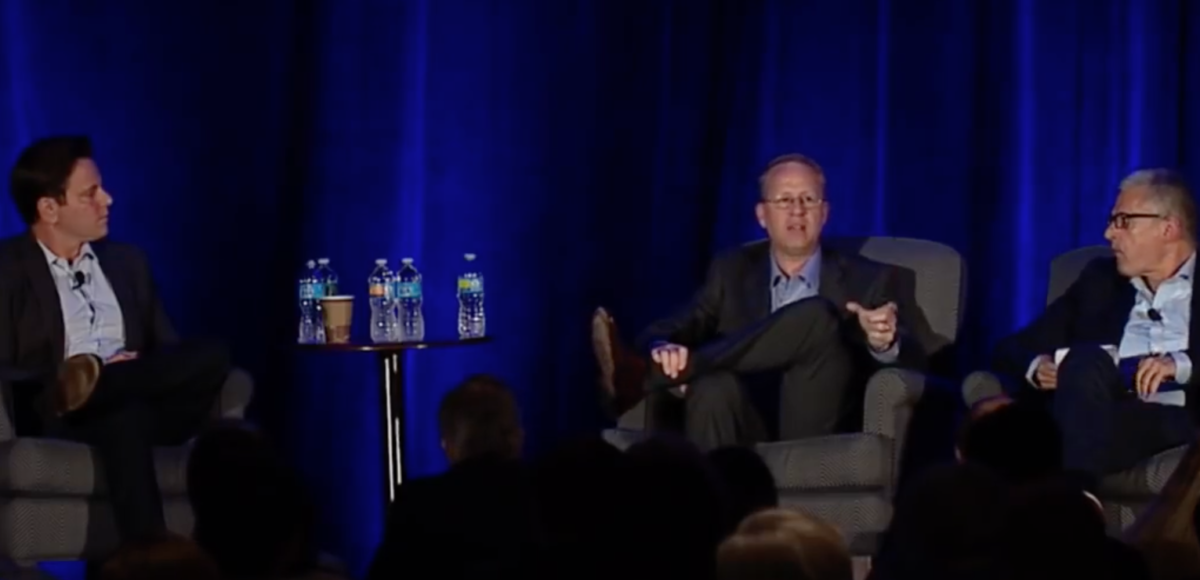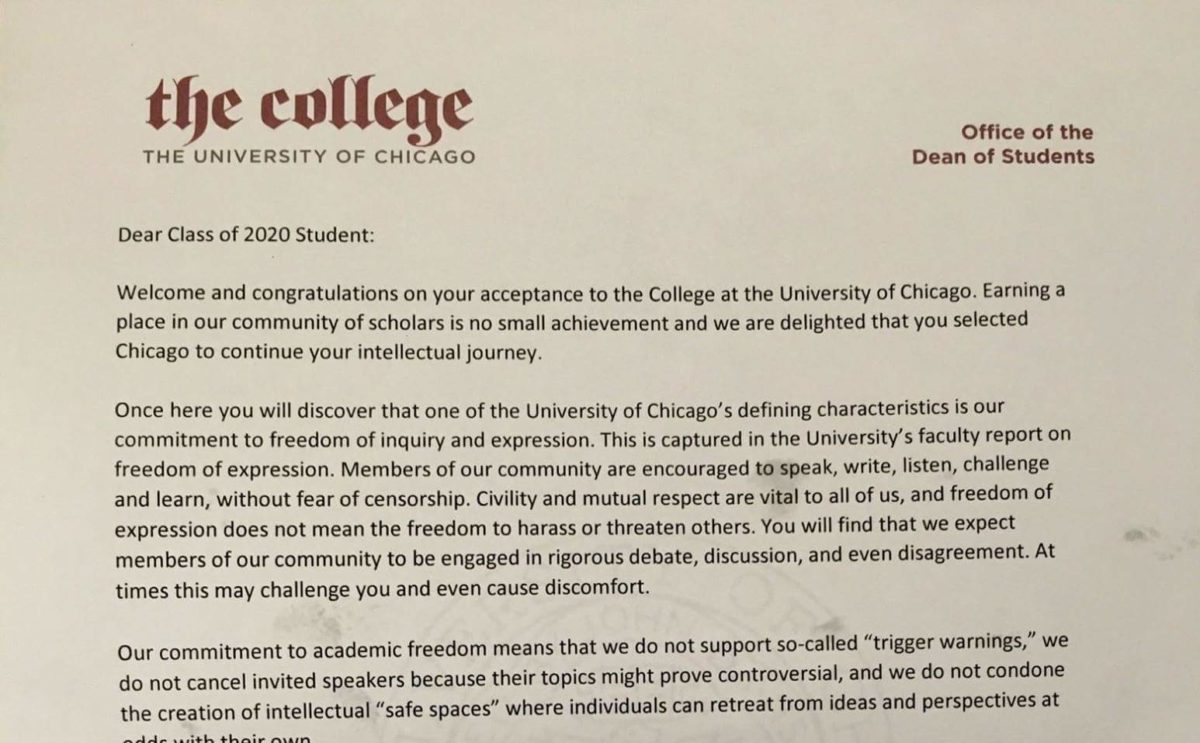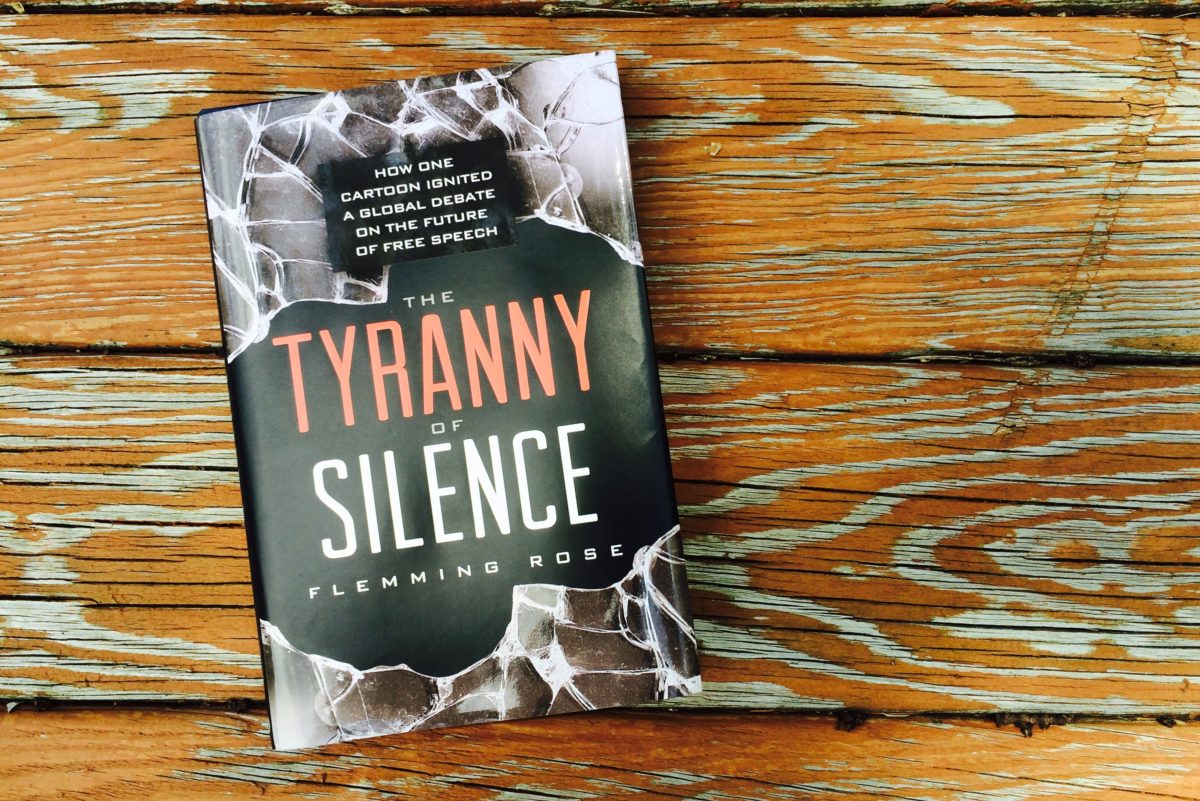In 2005, Flemming Rose, then editor of the Danish newspaper Jyllands-Posten, published a series of cartoons that were critical of Islam. In response to the cartoons, a number of riots broke out across the Muslim world, embassies were attacked, and numerous individuals were killed. Ten years later, the satirical French magazine Charlie Hebdo was attacked by Muslim terrorists in retaliation for printing cartoons critical of Islam. In more recent memory, readers will recall the riots against Milo Yiannopoulos at UC Berkeley and Ann Coulter’s failed attempt to speak there, the establishment of safe spaces and the use of trigger warnings on campus. Taken together, these incidents and numerous others stretching back several decades indicate that free speech is under attack—both from outside the West and from within.
These circumstances formed the backdrop for a recent panel on free speech held at the Objectivist Summer Conference 2017, featuring: YouTube star, Dave Rubin; Senior Fellow at the Cato Institute, Flemming Rose; and Director of Legal Studies at the Ayn Rand Institute, Steve Simpson. The panel directly addressed these pivotal events in the war against free speech and discussed how to defend one’s right to free speech. In particular, the panel addressed the distinction between speech and violence, government’s role in regulating individual expression, and the concept of self-censorship throughout the talk.
A vital point stressed by the panel was the essential distinction between speech and actual violence. Steve Simpson noted that only speech made with the obvious and verifiable intent to incite others to violence could be legitimately deemed violent speech. A prime example of this is the difference between the leader of a racist mob calling for someone to be lynched, and a student inquiring about the history of race relations in the American South. Rose explained that the distinction between speech and actual violence was made by 16th century Europeans, who experienced the religious wars between Protestants and Catholics. These wars cost hundreds of thousands of individuals their lives. Eventually, their experiences with actual violence led the British to differentiate, in law, between an individual talking about religion, and a religious fanatic calling for the death of heretics.
The panel’s discussion clarified that speech itself is not physical violence—even when that speech is hateful or distasteful. Hence, it is clear that students on campuses who equate words with violence are ignoring a crucial distinction. A clear example of this can be seen in some of the recent activities of Antifa. Antifa is a group that justifies its own violence against police, civilians, and property as a response to so called violent words with which they disagree. But, as the panel stressed, there is a real difference between attacking someone based on disagreement (which is violence) compared to an individual advocating for abhorrent ideas, such as fascism or white nationalism. The former is an improper initiation of physical force (i.e., a crime); the other, merely a mistaken, or even evil individual advocating a bad ideology.
The panel also discussed the relationship between government and the individual within the realm of free speech. As Rose succinctly stated: “All hate speech laws are passed, not to stop hate, but to impose a social norm on all.” Rose was referencing the slew of hate speech laws in Europe that criminalize criticism of Islam, Holocaust denial, or speech about other allegedly taboo topics. In a similar vein, Steve Simpson recalled his experience arguing before the Supreme Court about campaign finance law. The argument his team advanced was that an individual has the right to use their money for political speech in whatever manner they please, including financing politicians, buying airtime, and buying ad space in print publications.
In the case of hate speech and campaign finance laws, the government actually intervenes to stop certain kinds of speech. But Dave Rubin mentioned his growing concern about the government over-reaching into free speech through its failure to intervene when actual crimes are committed against controversial speakers. A specific instance cited was the campus riot at UC Berkeley, where Milo Yiannopoulos was scheduled to speak. During the riot, the police did little to nothing when it came to providing security, or stopping the outbreak of violence, even though that is the job of the police. In such cases, as Rubin pointed out, the government’s failure to act is itself a threat to free speech.
In the long run, the government’s failure to protect controversial speakers can lead to what Rubin, Rose, and Simpson all described as the phenomena of self-censorship. As its name implies, self-censorship is the process by which an individual abstains from discussing some particular topic (Muslim immigration, politics, etc.) due to a real or perceived fear of backlash, or even violence unleashed against them in response to their words. As both Rubin and Simpson noted, when this phenomenon spreads far enough, it is game over for the spreading of any controversial ideas. The best example of this was when Rose decided to test the state of self-censorship in Denmark. After publishing the Danish cartoons Rose received death threats, was forced to hire security guards, and was added to Al-Qaeda’s hit list. The trouble he experienced as a result of failing to self-censor spoke volumes about the state of free speech in Europe back in 2005.
As for what the panelists advised an individual to do in order to deal with the thorny problem of self-censorship, the general idea was to weigh the positive and negative outcomes of engaging in any form of dialogue on any topic. As the panel pointed out, weighing the outcomes may not make the decision to speak or self-censor any easier. There may be enormous downsides to speaking out, but the consequences of not fighting against self-censorship may be even worse.
To listen to the full panel discussion, visit The Rubin Report on Youtube.




